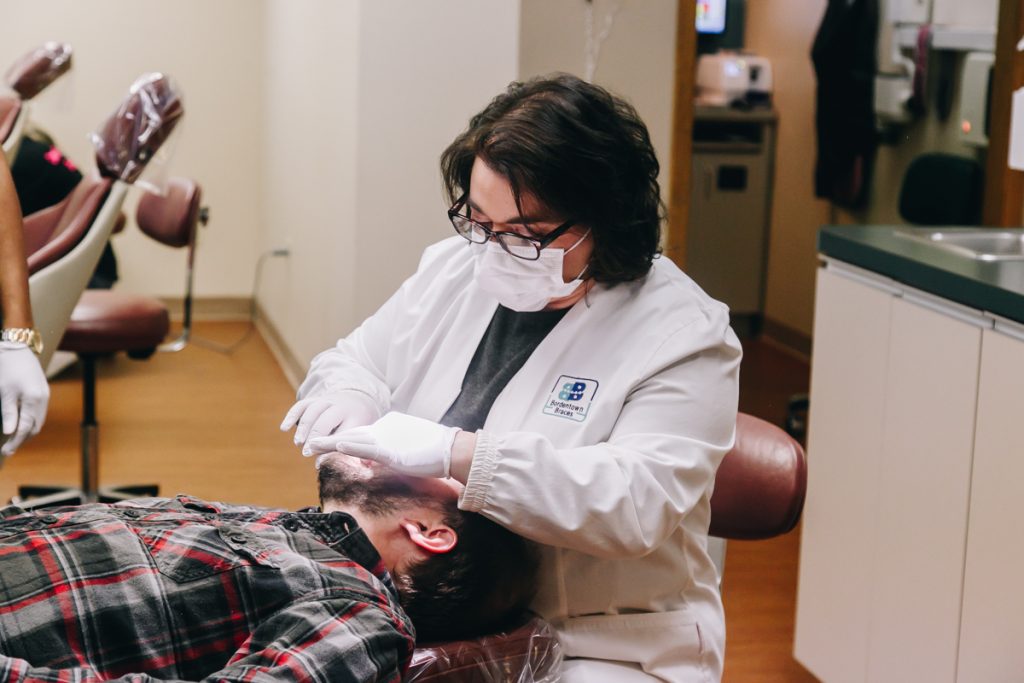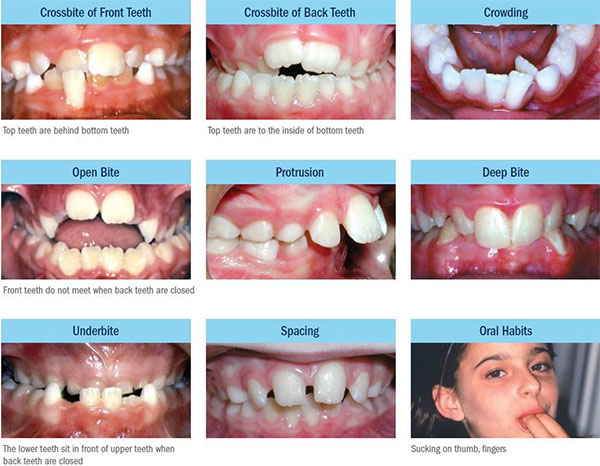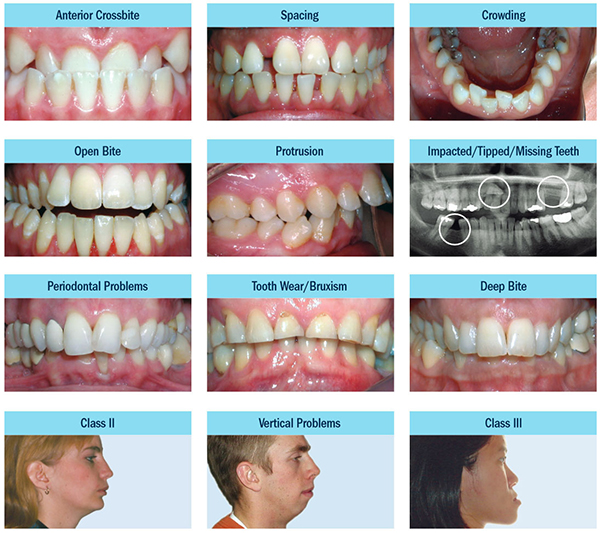Common Problems

Common Orthodontic Problems
Ideally, our teeth would bite down and the jaws would meet in a perfect bite to optimize function and oral health. Unfortunately, most people’s teeth are not in the perfect and ideal spot. This causes problems with chewing, oral hygiene, speaking and esthetics.
Malocclusion, or ‘bad bite’, is often times due to genetics. However, a bad bite can also be the result of thumb or finger-sucking, mouth breathing, dental disease, abnormal swallowing, poor dental hygiene, the early or late loss of baby teeth, accidents or poor nutrition. Trauma and other medical conditions such as birth defects may contribute to a variety of orthodontic problems as well.
Some common problems in children and teens treated by Dr. Newman include:
- Underbite: When the lower jaw extends out, causing the lower front teeth to sit in front of the upper front teeth.
- Overbite: The upper front teeth extend out over the lower front teeth, sometimes causing the lower front teeth to bite into the roof of the mouth. With this type of bite, there is often early enamel wear of the edges of the lower front teeth. Fixing this type of bite can preserve the health and longevity of the teeth.
- Crossbite: The upper teeth sit inside the lower teeth, which may cause tooth stratification and misaligned jaw growth.
- Openbite: Proper chewing is impacted by this type of bite, in which the upper and lower front teeth do not overlap. Openbite may cause a number of unwanted habits, such as a protruded resting position of the tongue and tongue thrusting.
- Widely Spaced Teeth: Spacing problems may be caused by missing teeth, or they may only be a cosmetic issue.
- Protrusion: Characterized by the upper teeth extending too far forward or the lower teeth not extending far enough forward. The appearance and function of your teeth are impacted by this type of bite.
- Crowding: Occurs when teeth have insufficient room to erupt from the gum. Crowding can often be corrected by expansion, and many times, tooth removal can be avoided.
- Misaligned Dental Midlines: Caused when the back bite does not fit and match appropriately, which may negatively impact jaw and proper dental function.
- Missing Permanent teeth: When permanent teeth are missing it may be possible to close the space of the missing tooth or it may be necessary to open the space and create an ideal environment for future replacement with a dental implant
- Treatment of oral habits: Thumb sucking, protruded tongue posture and tongue thrust can cause a variety of dental problems including crossbites, protrusion, contriction of the top jaw and speech problems.

Some common orthodontic problems in adults that may be corrected by Dr. Newman include:


